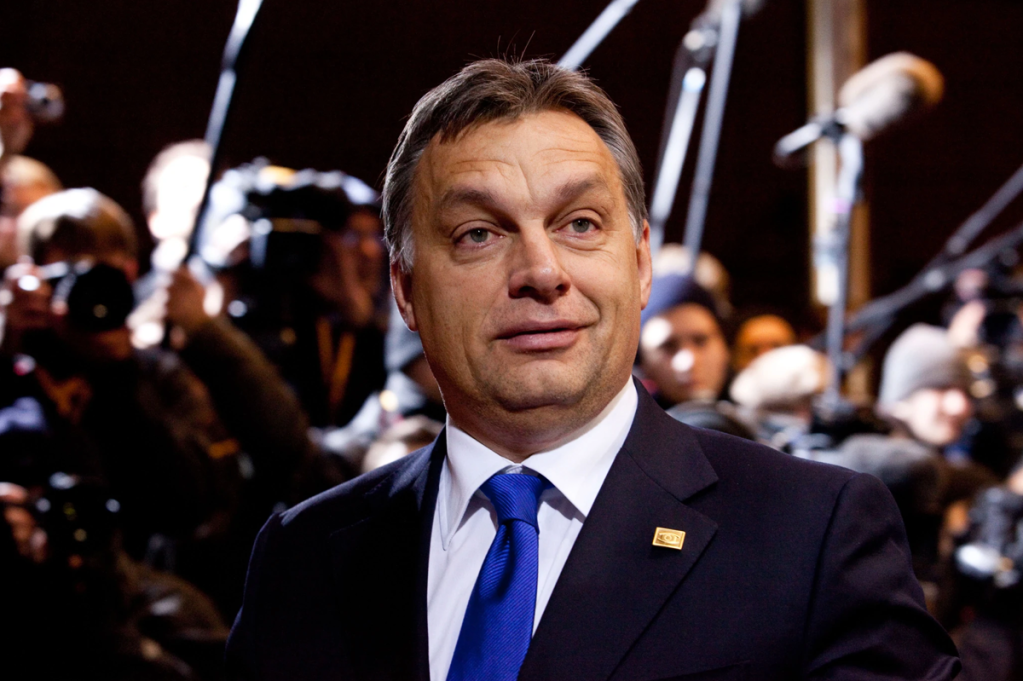After months of delay, the Hungarian parliament finally started the process of approving Finland and Sweden’s NATO membership this week. Prime Minister Viktor Orbán’s Fidesz party announced that it would back the two countries’ membership bids, but with Hungary the only country besides Turkey to have dragged its heels on the issue, he is again being accused of being the black sheep of the EU.
Orbán claims that despite his personal endorsement of Finnish and Swedish NATO membership, his “MPs aren’t very enthusiastic.” “Serious discussions” are needed to persuade his disgruntled party members, he says, even though his MPs almost never rebel against the party line. The obvious implication is that Fidesz MPs are following his lead.
Recently Orbán has cited his unease about the creation of a new NATO-Russia border, suggesting that “given the situation in Ukraine, the potential for war which this presents is great.” He has also said the Scandinavian countries’ critical attitude towards his own party has rankled with MPs, who believe “it’s not right for them to ask us to take them on board while they’re spreading blatant lies about Hungary.” Now, further delay is expected while Fidesz sends a delegation to Finland and Sweden to “settle the dispute” with them.
The lack of urgency has boosted claims from western media and politicians that Orbán is the “enemy within” following Russia’s invasion of Ukraine. The Hungarian leader has repeatedly threatened to veto sanctions on Russia and refuses to provide Ukraine with military aid. At home, he blames Hungary’s current economic hardships on the new Cold War mentality which has gripped the West, a mentality he says benefits powerful countries while harming smaller states like Hungary.
But if western powers have an enemy in Orbán, it is arguably one they created themselves. Horrified by his stance against progressivism and his opposition to EU authority, they have methodically alienated Hungary in recent years, culminating in the EU’s announcement last December that billions of euros in funding would be withheld from Hungary until Budapest conformed with Brussels’s edicts on the rule of law and human rights. A few months earlier, the Biden administration announced the cancellation of America’s double taxation treaty with Hungary, due to Budapest’s refusal to fall into line over a proposed global minimum corporation tax.
Now, the EU is responding to Orbán’s disruptive Ukraine stance the only way it knows how: with more hostility. Speaking in Prague on the anniversary of Russia’s invasion, European Commission vice president Věra Jourová lamented that the EU is treating Hungary with “unnecessarily refined correctness” and called on EU politicians to “hold Hungary to account” for its stance on Ukraine.
Western leaders’ problem with Orbán isn’t merely practical — it’s also a matter of their own political survival. As EU leaders face increasing difficulty convincing voters that they must keep backing Ukraine for “as long as it takes,” Orbán has been casting doubt on the assumptions underpinning their policies, saying Ukraine’s defense is “not a war between the armies of good and evil,” but a fight “between the troops of two Slavic countries.”
He rejects claims that success for Russia in Ukraine would encourage Putin to invade NATO’s ex-Soviet Baltic member states next, arguing the war has shown that “Russia wouldn’t stand a chance against NATO.” This view is common in Hungary; Attila Demkó, a Russia expert and head of the center for geopolitics at Budapest’s Mathias Corvinus Collegium, tells me that “the poor performance of the Russian military” means much of Hungarian society now has “no fear of Russia.” With Russia not seen as a major threat other than through its nuclear arsenal, Orbán believes the West has nothing to fear from seeking compromises that could facilitate an end to the fighting in Ukraine.
His ideas aren’t that unusual in Central Europe. In the Czech Republic and Slovakia, for example, many people take a similar view, or one even more sympathetic to Russia. Orbán is a threat to other leaders because he is the only one giving voice to this large yet neglected body of public opinion — though with snap elections coming in Slovakia this year, that could soon change.
In this context, calls for Hungary to be punished for its Ukraine stance raise difficult questions about national sovereignty. Does Hungary have the sovereign right to refrain from full and unconditional support for another country whose sovereignty is under attack? Orbán’s supporters would argue that the country is exercising the same right to self-determination which the Ukrainians are fighting for now.
Meanwhile, resentment is growing over accusations of disloyalty from western powers who have long treated Hungary with hostility. Similar frustration is responsible for ambivalence towards Ukraine, too, with Hungary long accusing Kyiv of mistreating Ukraine’s Hungarian minority. This sense of oppression is still “a major issue emotionally,” according to Demkó, who draws parallels with the sense of grievance that underpinned Irish neutrality during World War Two.
By suggesting that Orbán’s stance — strongly endorsed by voters in Hungarian elections last year — should not be allowed, western leaders are showing their lack of clarity on the values of plurality and sovereignty which they wax lyrical about in Ukraine. If the West can’t tolerate differences of opinion on the most important geopolitical event of a generation, then notwithstanding its strong support for Ukrainian sovereignty, it has lost its way.
This article was originally published on The Spectator’s UK website.

























